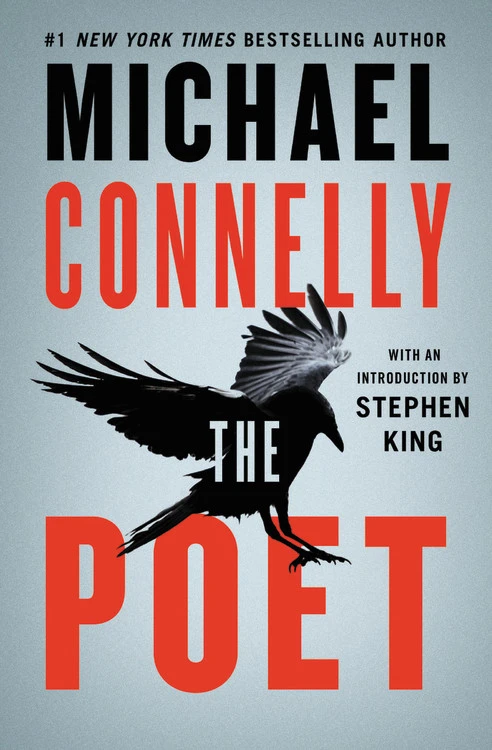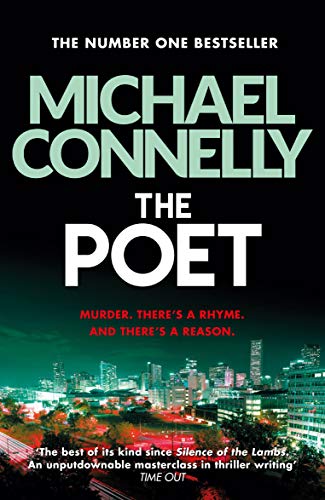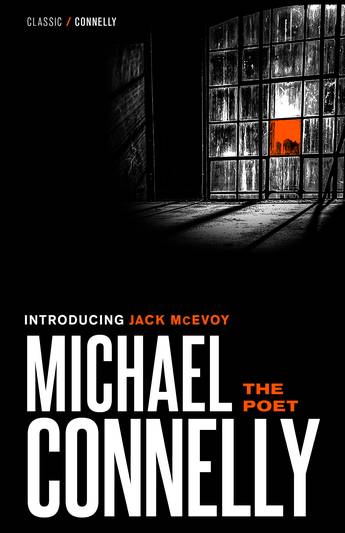The Poet Afterword
By Michael Connelly, from the Limited Edition Release of The Poet. WARNING: SPOILERS for The Poet.
After Robert Backus headed off into the darkness in the last pages of The Poet my full intention was for him to remain in the darkness, to never return, to always be out there like a killer ghost haunting my fictional world. I started writing the book in 1995. I had recently left my job as a journalist and was still struggling with the idea that as a crime novelist it would be expected that I write stories where good always vanquished evil, where the good guy caught the bad guy, where there were no loose ends — especially a jagged end like a killer left in the wind. I had spent a dozen years as a police beat reporter and I knew that reality was quite the opposite of that. People get away with murder everyday. I had written dozens and dozens of newspaper stories about murders that had gone unsolved. During the year I was writing The Poet I saw the murder case against O.J. Simpson start to self-destruct and the Los Angeles Police Department vilified for it. And so it was hard for me to turn from the reality of the world I knew and write one more murder mystery in which the sun rose at the end and all was right in the world. So I wrote The Poet with the idea that it would be a thrill ride with enough reader fulfillment at the end to overcome the dissatisfaction of having the killer ultimately get away. Before I wrote the first line — Death is my beat — I knew that the book would end with the killer slipping away into the darkness.
Now here I am eight years later, sitting in the same room at the Chateau Marmont where Jack McEvoy encountered Robert Backus, and I am trying to explain to you and myself why I have just written a sequel to The Poet. It is hard to explain, other than to simply say things have changed. That was then and this is now. Just out the window and across the balcony I no longer see the Marlboro Man’s steely eyes watching from the billboard. He has been replaced by a vanilla vodka bottle. I am different, too. And so is the world.
In the years since writing The Poet the world has grown more welcoming to me at the same time it’s become more uncertain to me. A couple years after writing The Poet I became a father and my life became wonderful and vulnerable in the same moment. As I watched my daughter grow it began to bother me that I had created a fictional world where a killer like Robert Backus could walk free. I started to long for order to be restored in that world. After all, the real world had become a place of increased fears and uncertain safety. I came to realize that the one place where I could control things was in the fictional universe that I had created. So six years after Robert Backus disappeared into the dark I made the decision to go back into that darkness to find him. And I decided to use Harry Bosch for the job. Harry is my best man. He is also a man who has become a father and knows my sense of wonder and joy and fear all at the same time. The story is called The Narrows and my hope is that it shows a bit of what I have learned since the time I decided to let a killer go free.
Yes, in reality people still get away with murder. I don’t know if that will ever change. But I have come to realize that the line between reality and the created world of a novel is thinnest when it comes to human feelings and desires. It is easy to take those across the line, traveling from fiction to reality. And so I have learned that it is important to take care in the fictional universe of your own creation. It is important to remember that the darkness into which you may banish a killer can travel. It can cross that line. I don’t want that to happen. In that respect I look at The Narrows as a story that is long overdue.
Michael Connelly
Chateau Marmont Hotel, Los Angeles
December 13, 2003


